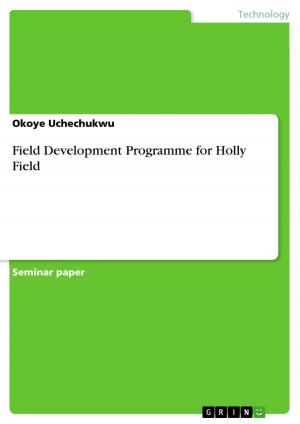Account for the cyclical revivals in the fortunes of neo-fascist parties in Germany, France and Italy since the 1950s
Nonfiction, Social & Cultural Studies, Political Science| Author: | Nia Verdenhalven | ISBN: | 9783638869782 |
| Publisher: | GRIN Verlag | Publication: | December 3, 2007 |
| Imprint: | GRIN Verlag | Language: | English |
| Author: | Nia Verdenhalven |
| ISBN: | 9783638869782 |
| Publisher: | GRIN Verlag |
| Publication: | December 3, 2007 |
| Imprint: | GRIN Verlag |
| Language: | English |
Essay from the year 2007 in the subject Politics - International Politics - Region: Western Europe, grade: A/First mark/ 1.0, King`s College London, course: Comparative European Politics, 19 entries in the bibliography, language: English, abstract: Fascism - one associates this term automatically with the horrors of the Second World War and with an ideology that cost the lives of millions of people during this time. However, throughout the post-war period fascism could succeed to creep back into European politics and by now, the Front Nationale in France, Italy's Alleanza Nazionale and the far-right parties in Germany are deep-seated in the political landscapes of these countries and score at times worryingly high election results. This essay will examine the 'three waves of neo-fascism' in Germany, Italy and France and will attempt to demonstrate that the revivals of the ultra-right in all three countries were triggered by resentment and bitterness during times of economic stagnation and will thus suggest that fascism is a by-product of capitalism.
Essay from the year 2007 in the subject Politics - International Politics - Region: Western Europe, grade: A/First mark/ 1.0, King`s College London, course: Comparative European Politics, 19 entries in the bibliography, language: English, abstract: Fascism - one associates this term automatically with the horrors of the Second World War and with an ideology that cost the lives of millions of people during this time. However, throughout the post-war period fascism could succeed to creep back into European politics and by now, the Front Nationale in France, Italy's Alleanza Nazionale and the far-right parties in Germany are deep-seated in the political landscapes of these countries and score at times worryingly high election results. This essay will examine the 'three waves of neo-fascism' in Germany, Italy and France and will attempt to demonstrate that the revivals of the ultra-right in all three countries were triggered by resentment and bitterness during times of economic stagnation and will thus suggest that fascism is a by-product of capitalism.















